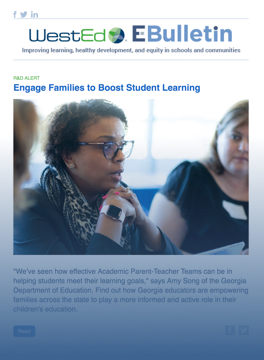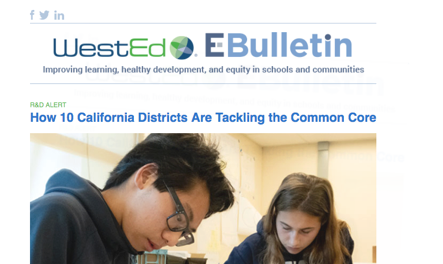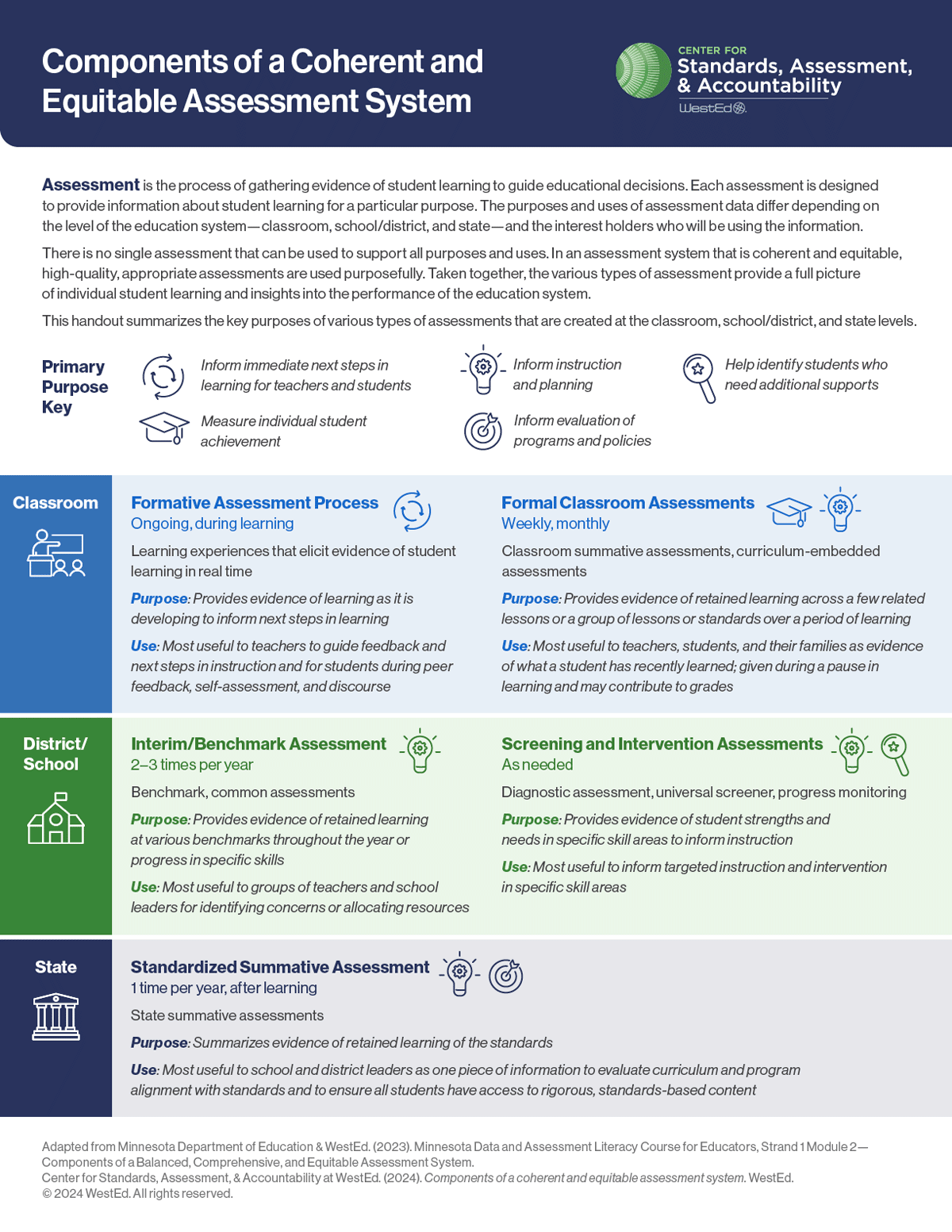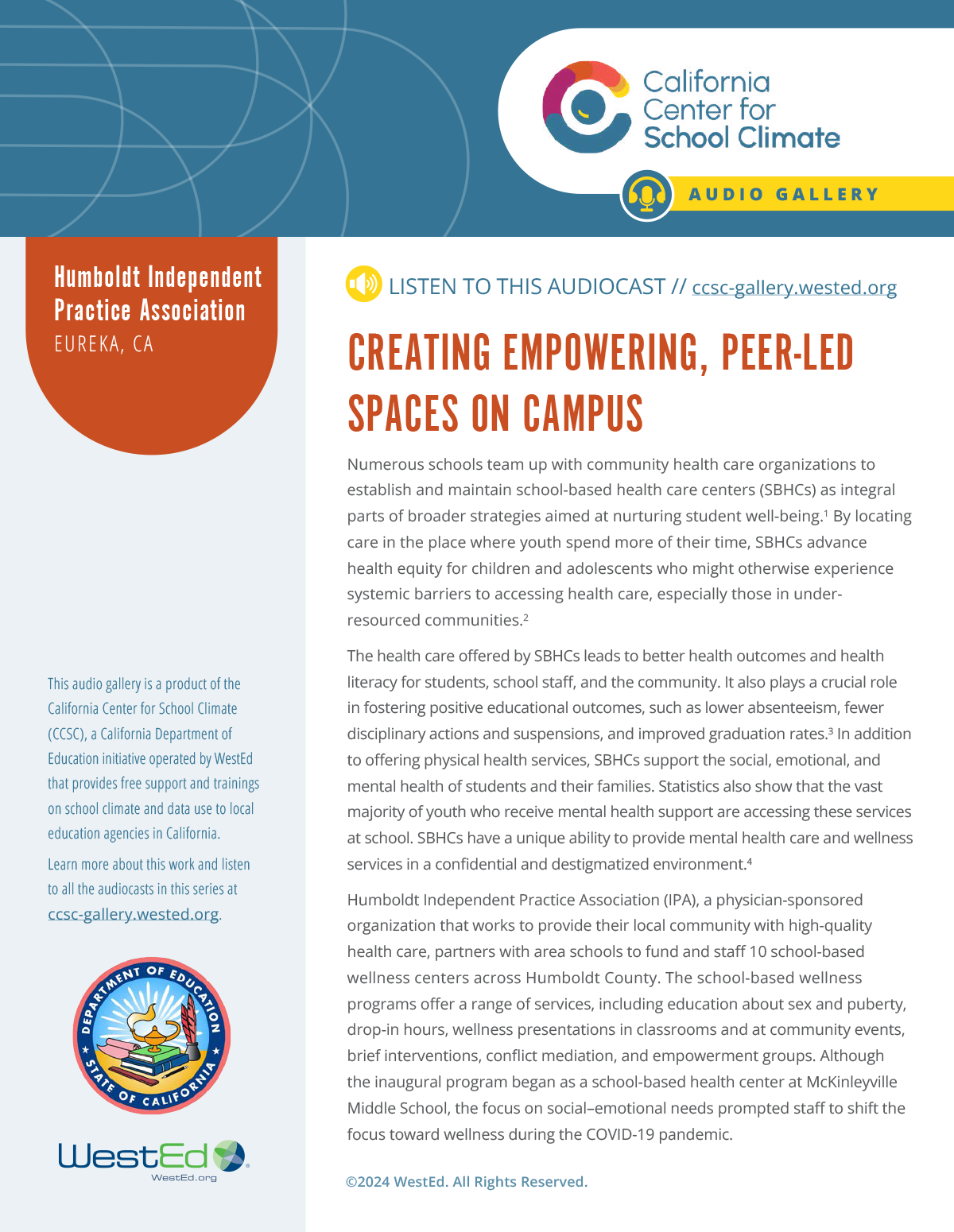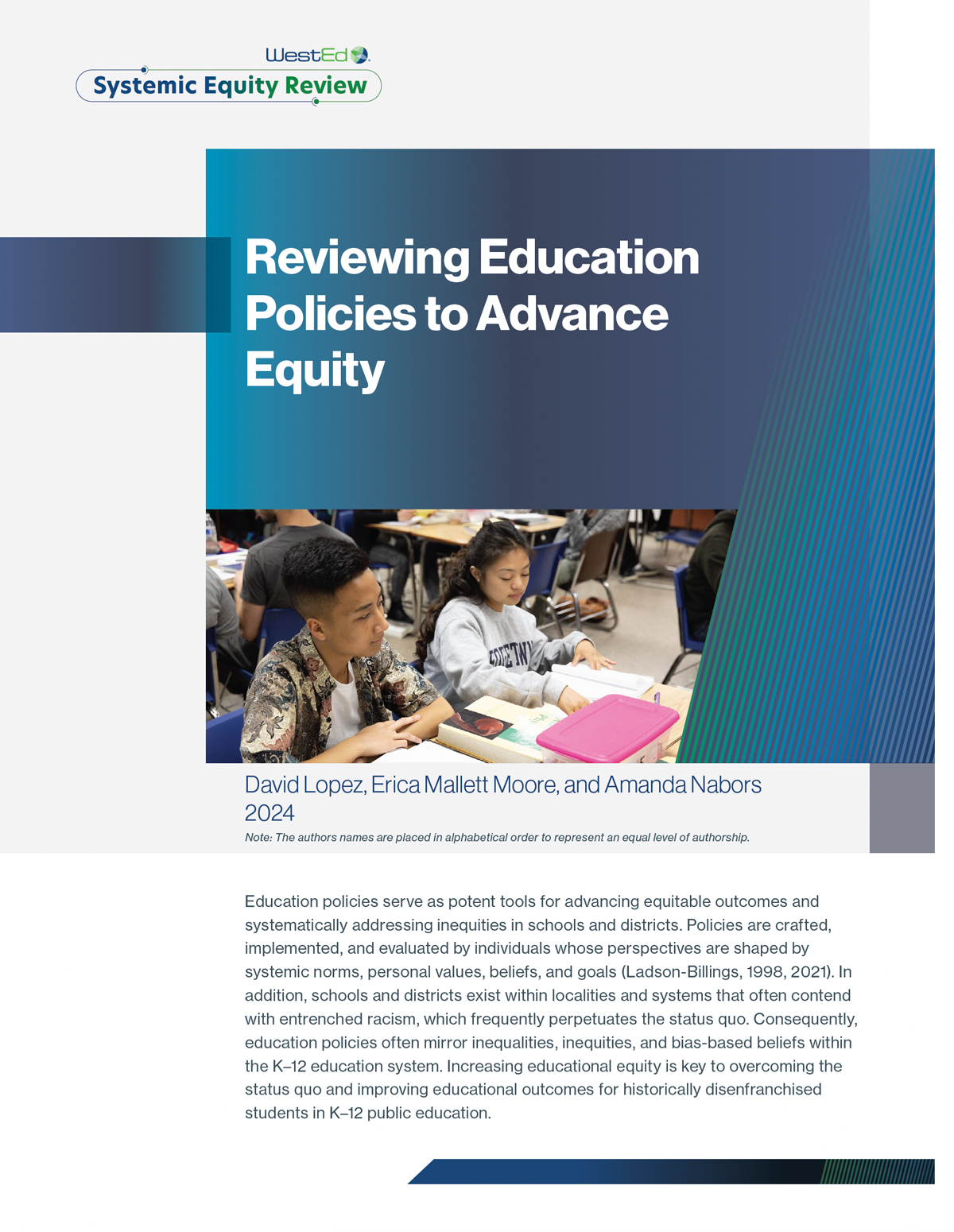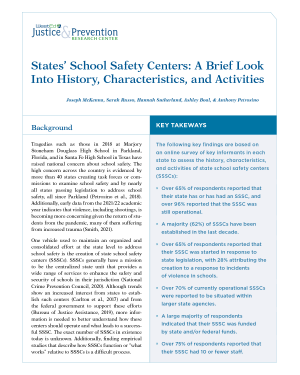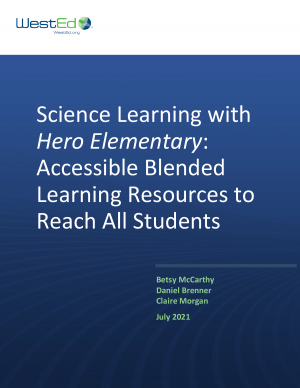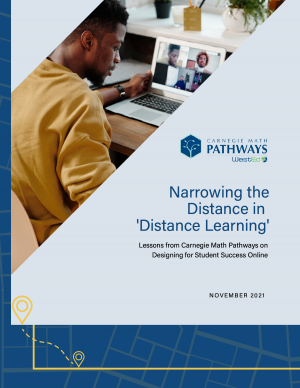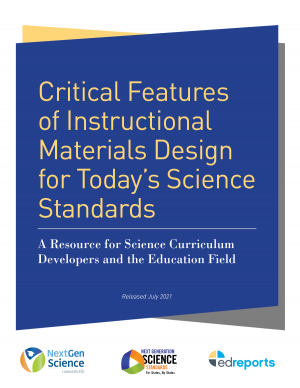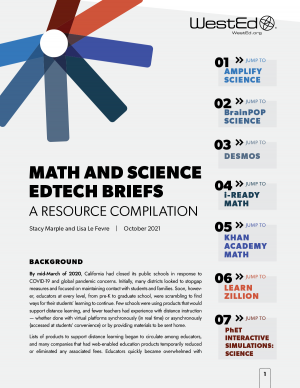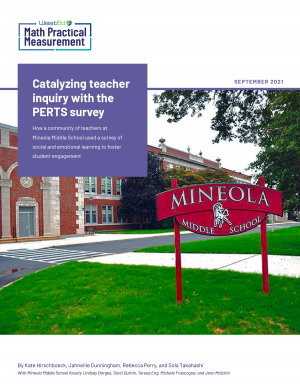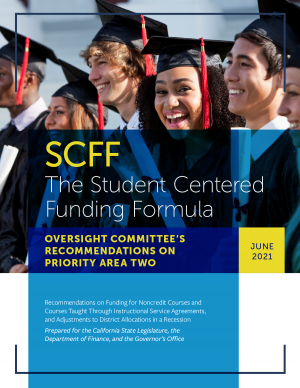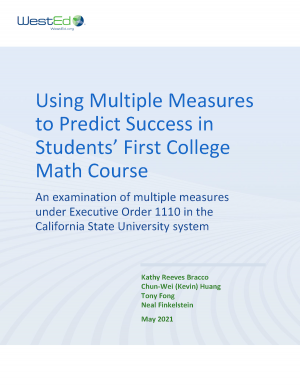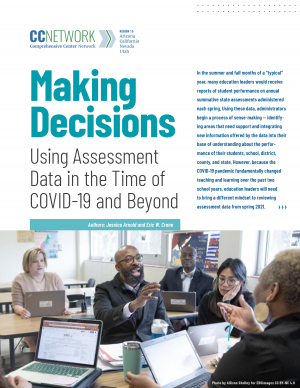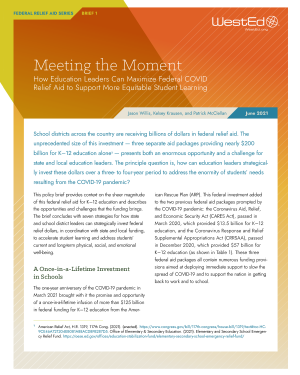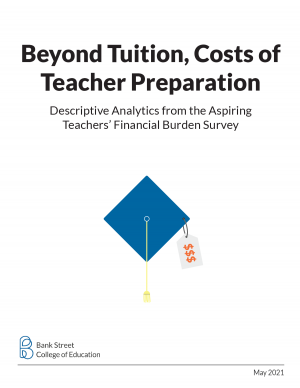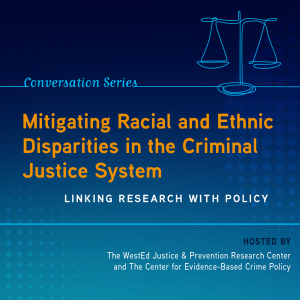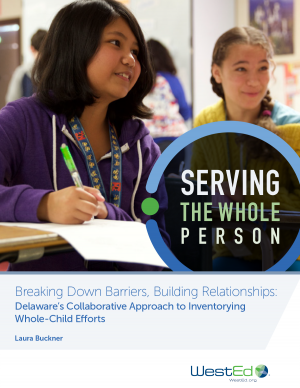Research & Evaluation
-
States’ School Safety Centers: A Brief Look Into History, Characteristics, and Activities
This brief produced by WestEd’s Justice and Prevention Research Center (JPRC) provides much-needed information on the history, characteristics, and activities of school safety centers (SSSCs).
-
Curriculum Materials Designed for the Next Generation Science Standards Show Promise
WestEd led an independent randomized controlled trial to evaluate the efficacy of the NGSS-designed Amplify Science Middle School (ASMS) curriculum with initial findings supporting the use of ASMS curriculum to improve student learning outcomes in physical science.
-
Science Learning with Hero Elementary: Accessible Blended Learning Resources to Reach All Students
There is a need to design learning resources that allow a diverse range of students access to instructional content, including students with disabilities, dual-language learners,
-
Narrowing the Distance in ‘Distance Learning’: Lessons from Carnegie Math Pathways on Designing for Student Success Online
This Carnegie Math Pathways brief highlights some of the key learnings from the design and implementation of online Carnegie Math Pathways courses to narrow the distance and promote student success.
-
Critical Features of Instructional Materials Design for Today’s Science Standards: A Resource for Science Curriculum Developers and the Education Field
This resource outlines critical design features of science instructional materials and provides common language for describing high-quality materials.
-
Math and Science EdTech Briefs: A Resource Compilation
This series of seven briefs presents a broad overview of the research base, functionality, and modes of implementation for science and math EdTech products to help educators better understand opportunities for implementation.
-
Catalyzing Teacher Inquiry with the PERTS Survey
Learn how a community of teachers at Mineola Middle School used a survey of social and emotional learning to foster student engagement
-
SCFF The Student Centered Funding Formula: Oversight Committee's Recommendations on Priority Area Two
The Student Centered Funding Formula (SCFF) Oversight Committee issues recommendations for Priority Area Two regarding noncredit instruction and instructional service agreements as well as district allocations during a possible recession.
-
Using Multiple Measures to Predict Success in Students’ First College Math Course
This report concludes a multiyear series of implementation studies intended to inform the California State University (CSU) system about the implementation of Executive Order 1110 (EO 1110).
-
Making Decisions Using Assessment Data in the Time of COVID-19
This knowledge brief produced by the Region 15 Comprehensive Center explores how to gather meaningful assessment data in order to develop responsive supports that address the needs of all students, particularly those most affected by learning disruptions due to COVID-19.
-
Meeting the Moment: How Education Leaders Can Maximize Federal COVID Relief Aid to Support More Equitable Student Learning
This policy brief provides context on the sheer magnitude of federal COVID-19 relief aid for K–12 education and describes the opportunities and challenges that the funding brings.
-
Beyond Tuition, Costs of Teacher Preparation: Descriptive Analytics from the Aspiring Teachers’ Financial Burden Survey
This report helps higher education leaders to better understand the financial realities of aspiring teachers in the context of their personal circumstances.
-
Mitigating Racial and Ethnic Disparities in Juvenile Justice
In this online conversation, Nancy Rodriguez, Sean Darling-Hammond, and David Muhammad discuss innovations in juvenile justice that can lead to meaningful change.
-
Going Further Together: Building Ownership and Engagement to Support High-Quality Teacher Preparation
This report produced by Bank Street College of Education and WestEd shares strategies for building successful teacher preparation programs that have expanded shared ownership and engagement to ensure program development and longevity.
-
Breaking Down Barriers, Building Relationships: Delaware’s Collaborative Approach to Inventorying Whole-Child Efforts
This case story describes Delaware Department of Education (DOE)'s collaborative approach to inventorying whole-child efforts, using and adapting the guide to comprehensively review their statewide initiatives.
« Previous View More

Stay Connected
Subscribe to the E-Bulletin and receive regular updates on research, free resources, solutions, and job postings from WestEd.
Your download will be available after you subscribe, or choose no thanks.
